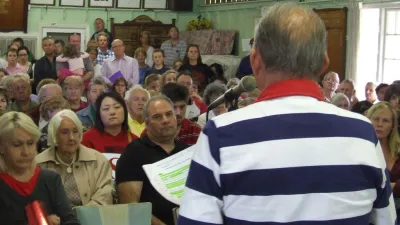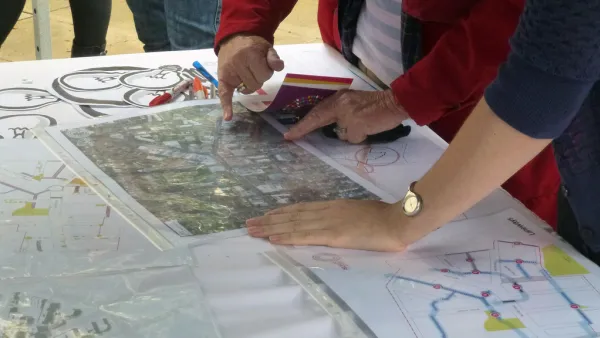A professor of planning calls out the emotional abuse facing planners—from professional colleagues in related fields, from elected officials, and from the public.

Lisa Schweitzer, associate professor of urban planning at the University of Southern California's Sol Price School of Public Policy, writes on an "understudied and underdiscussed" phenomenon facing professional planners: the emotional abuse planners face while doing their job.
Despite the mythology of planners as powerful, Robert Moses-like figures in the landscape of city building, planners don't actually wield much power, according to Schweitzer.
That means planners and planning make good scapegoats for the other professions and for people angry at state/capital/community action. Planners put up with this all the time, from engineers who pull out the science status card to developers who pull out the economics education card to architects who pull out the design education card.
More than just facing bullying from the other professions listed there, Schwietzer also acknowledges the abuse dished out to planners from both elected officials and the public.
The number of times I’ve had electeds use public meetings to score points off planners…I can’t even count. From dismissing whatever the planner has presented as “socialism” to suggesting in public and in front of the press (with no consequences) that a planner is on the take, I’ve pretty much seen it all.
Then the public, blaming planners for everything in sight because they are less intimidating targets than the electeds, who, chances are, are the driving force behind whatever project or idea it is that is pissing off members of the public.
Schweitzer raises these points to acknowledge that abuse, instead of continuing to ignore it, and to express pride for the planners working hard to make their communities "become better, nicer, more resourced, more just…and just more."
FULL STORY: Let’s talk about the emotional abuse of planners

Analysis: Cybertruck Fatality Rate Far Exceeds That of Ford Pinto
The Tesla Cybertruck was recalled seven times last year.

National Parks Layoffs Will Cause Communities to Lose Billions
Thousands of essential park workers were laid off this week, just before the busy spring break season.

Retro-silient?: America’s First “Eco-burb,” The Woodlands Turns 50
A master-planned community north of Houston offers lessons on green infrastructure and resilient design, but falls short of its founder’s lofty affordability and walkability goals.

Test News Post 1
This is a summary

Analysis: Cybertruck Fatality Rate Far Exceeds That of Ford Pinto
The Tesla Cybertruck was recalled seven times last year.

Test News Headline 46
Test for the image on the front page.
Urban Design for Planners 1: Software Tools
This six-course series explores essential urban design concepts using open source software and equips planners with the tools they need to participate fully in the urban design process.
Planning for Universal Design
Learn the tools for implementing Universal Design in planning regulations.
EMC Planning Group, Inc.
Planetizen
Planetizen
Mpact (formerly Rail~Volution)
Great Falls Development Authority, Inc.
HUDs Office of Policy Development and Research
NYU Wagner Graduate School of Public Service




























